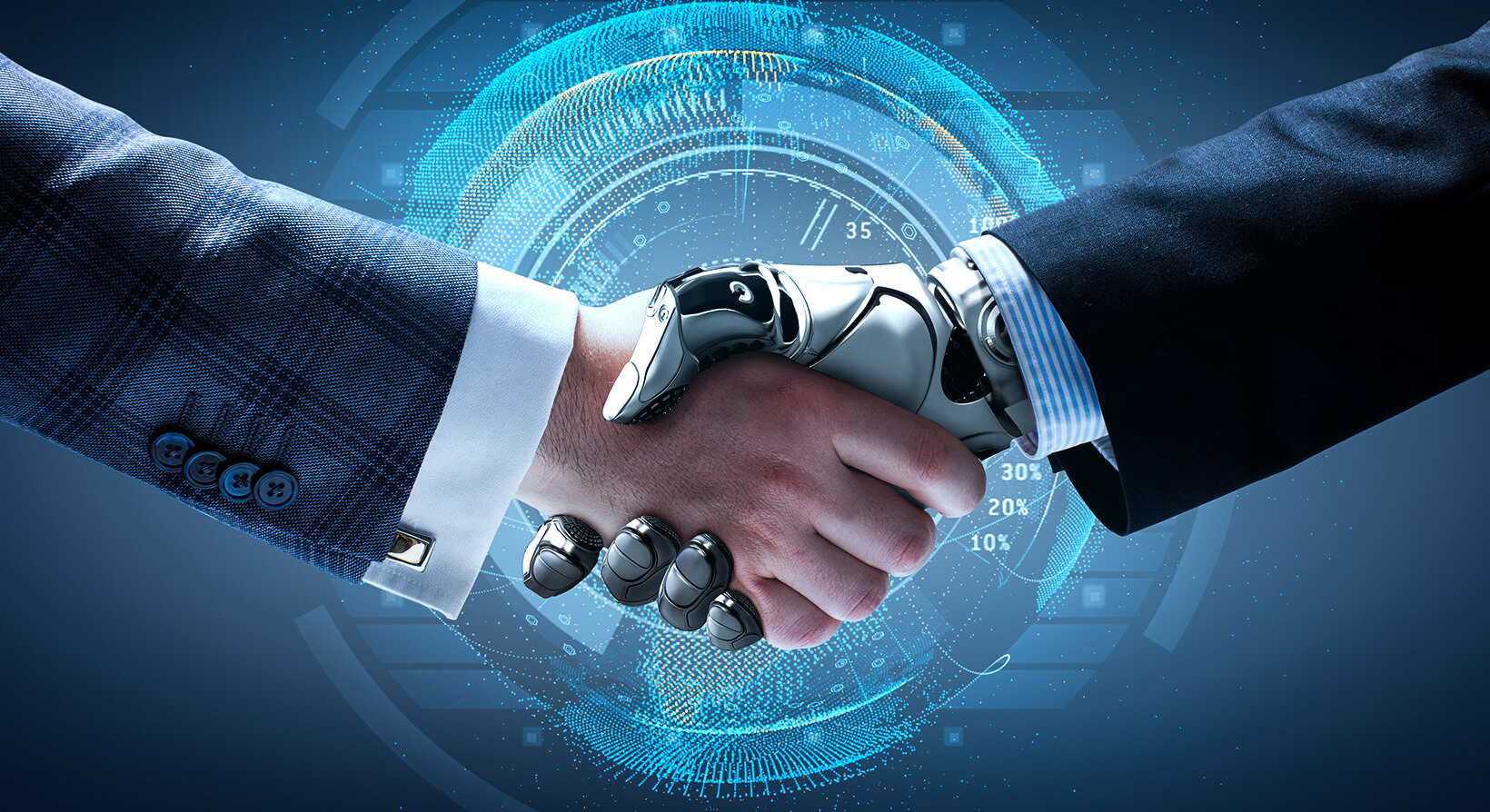Artificial intelligence (AI) has come a long way in recent years and is poised to transform nearly every aspect of our lives. From self-driving cars to virtual assistants like Siri and Alexa, AI is already becoming an integral part of our daily routines. However, many experts believe we are still only scratching the surface of what AI will be capable of in the coming decades. In this blog post, we’ll take a look at some of the ways artificial intelligence and the future of humans is likely to evolve and how AI will change the world.
AI and Automation
One of the most obvious applications for future AI will be increased automation across a wide range of industries. AI programs are already capable of performing many routine tasks in fields like customer service, transportation, manufacturing, and more. As technology improves, AIs will be able to take over even more complex jobs. This could free up humans to focus on more creative and interpersonal work. However, it may also disrupt certain job markets as tasks currently performed by people are handled by AI. The extent to which increased automation helps or hurts workers is a topic of much debate among experts.
AI and Healthcare
The healthcare sector is poised to be one of the areas most impacted by advancing AI capabilities. Precision medicine, powered by AI algorithms, will allow doctors to customize treatment plans based on patients’ individual health profiles. AI diagnostic tools will be able to analyze medical images and data to detect illnesses and diseases earlier and with greater accuracy than humans. Pharmaceutical companies may use AI to streamline and improve drug development processes. Voice technology and virtual assistants can act as helpful aides for both patients and healthcare providers. Overall, the application of AI in healthcare has the potential to improve the quality of care while reducing costs.
AI and Daily Life
Beyond specialized domains like healthcare, AI promises to revolutionize aspects of daily life in the future. It’s easy to imagine intelligent virtual assistants who can interact conversationally, manage schedules, handle basic tasks, and access information on the internet. Autonomous vehicles will reshape transportation and urban planning. AI algorithms will continue to enhance entertainment services like Netflix, Spotify, and YouTube to provide personalized, engaging content to users. Even shopping, cooking, cleaning, and other household tasks could be made more convenient by AI. As technology improves, AI may handle more and more aspects of routine daily functions.
The Risks of AI
Despite its great promise, many leading thinkers have expressed concerns about the potential risks and downsides of advanced AI. AI systems that are poorly designed can exhibit biases, errors, and unintended consequences. Misuse of AI for malicious purposes, like cybercrime or warfare, could have devastating impacts. If extremely advanced AI surpasses human-level intelligence, it may be difficult for people to monitor or understand its actions. While most experts think such advanced general intelligence is still decades away, researchers are already studying ways to ensure AI safety through careful design. As we advance, it will be crucial that the development of AI prioritizes transparency, security, and benefits to humanity as a whole.
The Future of Humans in an AI World

As AI capabilities expand, one natural question is what role humans will play. While many routine jobs and tasks will likely be handled primarily by AI, humans are still better suited for creative and collaborative work requiring emotional intelligence. Experts predict there will be a growing demand for “uniquely human” skills like innovation, relationship building, leadership, and complex communication. Rather than competing directly with machines, humans’ time may be freed up for higher-level thinking and decision-making enabled by AI assistants. Adapting policies around education, employment, and worker rights will help ensure humans have fulfilling roles working in conjunction with AI systems.
Artificial Intelligence and the Future of Humans
The rise of powerful AI promises to reshape our world in profound ways in the coming decades. With prudent management, AI can be leveraged to dramatically improve areas like healthcare, transportation, entertainment, and more for the benefit of humanity as a whole. However, we must also take care to address risks around biases, errors, and potential misuse of the technology. If society handles AI judiciously, it can open up an amazing future where both machines and humans work together to solve the world’s challenges. But we must carefully shape its development so human values and dignity remain at the center. By prioritizing ethics and human oversight now, we can work to ensure the future of artificial intelligence truly enhances the lives of all people.
AI and Creativity
Can machines really be creative? That’s a question we’ll have to grapple with as AI gets more advanced. Some argue creativity requires human consciousness – things like inspiration, feeling, and free will. But others say being ruled by algorithms doesn’t preclude creativity. AI programs are already generating surprisingly impressive and original art, music, and writing. However, critics maintain there’s something soulless or formulaic about it compared to human creations. Personally, I think the future will see intelligent algorithms acting as assistants to human artists rather than replacing them fully. The two can work together, with AIs handling technical tasks while people provide the vision and emotional depth. We may end up with wonderful creations neither humans nor machines could produce alone!
AI and Productivity
AI is poised to make almost every workplace far more efficient. Intelligent algorithms can take over repetitive administrative tasks, freeing up humans for more complex and rewarding work. However, there are understandable concerns that deploying thinking machines to optimize productivity could put many people out of jobs. It’s inevitable that some roles will become automated –look at all the secretaries replaced by word-processing software. But past industrial revolutions show that technology ends up creating new kinds of jobs, too. As long as we manage the transition wisely, AI should lead to greater abundance and prosperity for all, not mass unemployment. But we’ll need to adapt economic models and education to prevent disruption.
How AI Will Change The World of Education
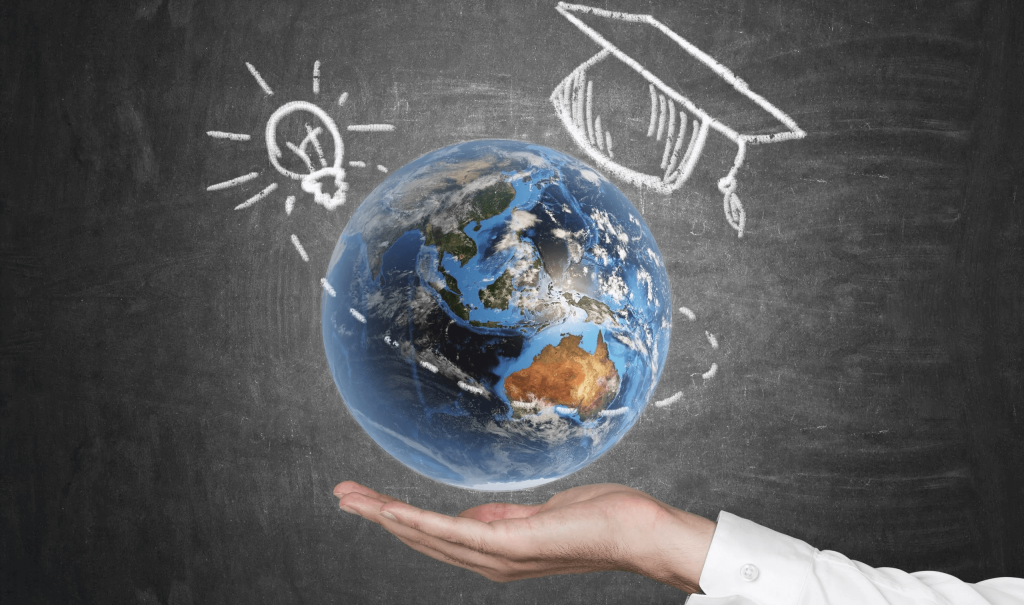
Classrooms populated with robot teachers and hologram lecturers may seem like science fiction. But in the coming decades, expert systems and intelligent tutoring programs could play a major role in education. AI learning companions tailored to each student could make the experience interactive, engaging, and efficient. However, we have to be careful not to over-automate education. Human teachers provide guidance, emotional development, and real interpersonal connections that algorithms can’t replicate. The best approach is likely to utilize AI tools thoughtfully under the supervision of real, qualified educators. Humans and machines both have strengths and weaknesses, so the ideal education of the future will incorporate both sides.
AI and Ethics
As thinking machines grow more autonomous, instilling them with ethical reasoning becomes crucial. Without aligned values, advanced AI could create all sorts of unintended harm and disruption. Methods like value alignment research and AI safety engineering aim to avoid this by baking human principles into their design. Of course, agreeing on ethical values is easier said than done when even humans often dispute morality! This challenge requires ongoing collaboration between technologists, philosophers, social scientists, policymakers, and the general public. By taking the time to shape the morals of artificial intelligence now carefully, we can maximize the chances of creating machines that enhance the world and prevent catastrophes.
AI and Security
AI has enormous potential to bolster cybersecurity and help safeguard data. AI programs can rapidly analyze threats, identify attempted intrusions, and adapt to new risks better than human analysts. But adversaries can also weaponize AI for coordinated hacking, fraud, and information warfare. As algorithms grow more powerful, protecting them from criminal or unethical use will be pivotal. Governments and companies will likely need to treat advanced AI systems as potentially dangerous weapons requiring intense oversight. At the same time, “fighting fire with fire” by deploying defensive AI systems may become essential to stay ahead of online threats. Like any powerful technology, AI can empower both defenders and attackers – so responsible development is key.
How AI Will Change The World of Philosophy
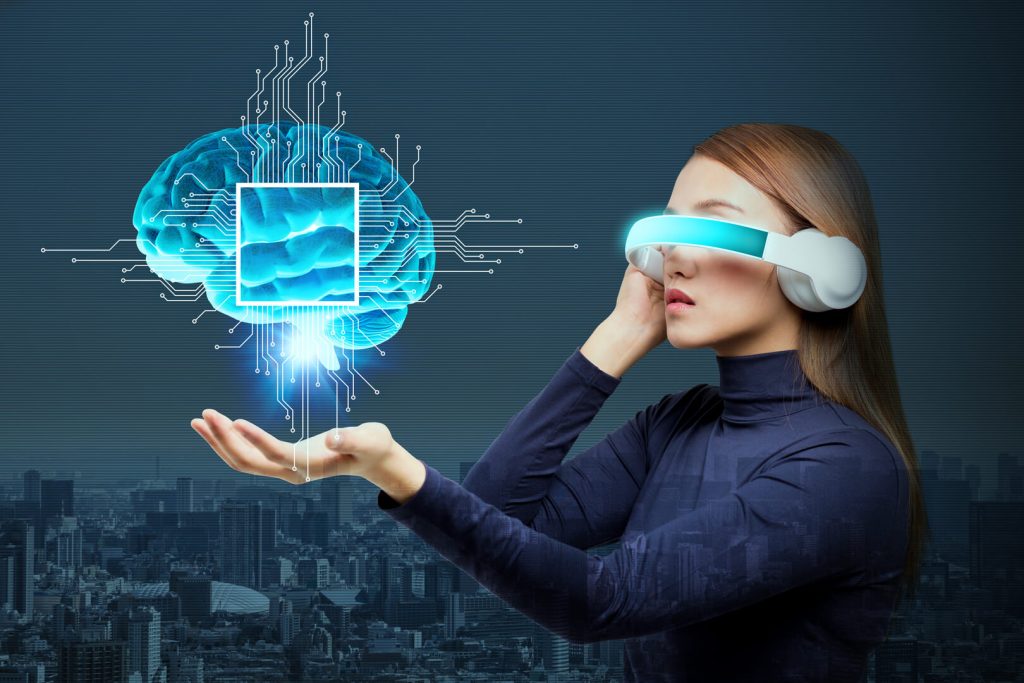
The emergence of thinking machines forces humanity to confront profound philosophical puzzles. If an artificial mind approaches and even exceeds human levels of consciousness and intelligence, how would we treat it? Does it deserve rights and moral consideration? Can machines have dignity and “feel” emotions? Will we be able to contain and control AI once it becomes vastly smarter than people? AI also raises metaphysical questions about the nature of mind, thought, creativity, and existence itself. Current debates echo philosophical debates around brains, minds, and free will that have been ongoing for millennia. To develop AI wisely in the coming decades, technologists must collaborate closely with philosophers, social theorists, ethicists, and other deep thinkers to navigate these complex issues.
AI and Government
Nations are racing to lead in advanced AI, which is increasingly being seen as vital to economic prosperity and defense. Governments are investing heavily in AI research and development. They want to be at the forefront of commercializing AI across industries and training workers with technical skills. At the same time, political leaders face pressures to regulate AI prudently. Intelligent systems must be developed securely and ethically to prevent disruption. Striking the right balance between fostering innovation and managing risks will be a key challenge. Ultimately, no nation can afford to ignore advancements in AI – but neither can governments allow development to proceed recklessly. International cooperation to share best practices will benefit all societies.
How AI Will Change The World of Space Exploration
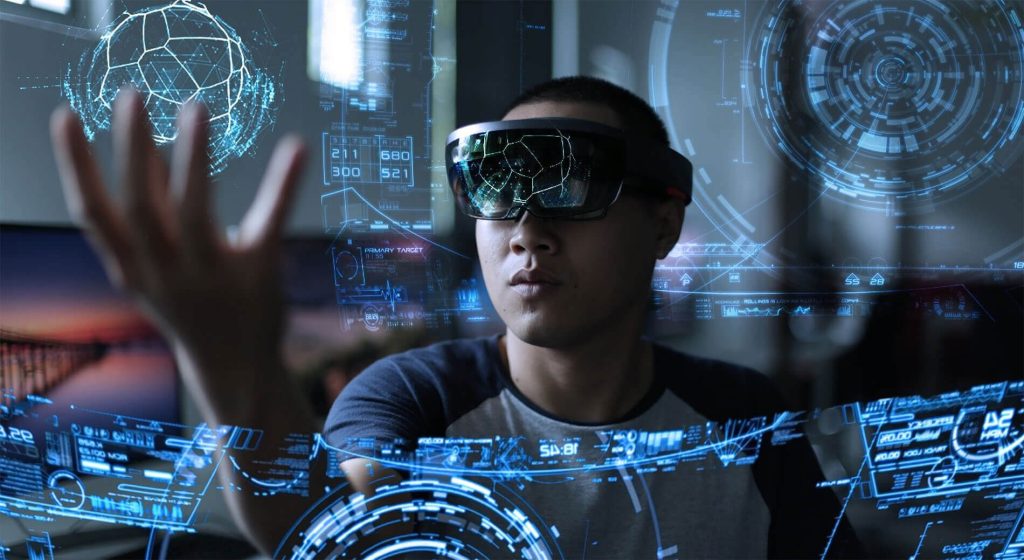
Advanced AI and robotics will enable humans to explore space in unprecedented ways. AI astronauts and rovers can venture far beyond where people could survive, taking more risks and requiring less cost and infrastructure. They’ll visit harsh planets and asteroids to gather data and resources. But some argue if space exploration is dominated by machines, it loses its inspirational value for humanity. Neil Armstrong’s iconic first steps on the moon meant so much precisely because he was human. If all we send into the cosmos are non-conscious robots, is something lost? I think the ideal future includes AI expanding our knowledge of space while still reserving some missions for people, like establishing settlements. By working together creatively, humans and AI can uncover the cosmos’ mysteries.
AI and the Economy
The widespread adoption of AI across industries represents a huge economic opportunity if managed wisely. Accelerated automation could drive enormous productivity gains and efficiency. But there are also risks of surging unemployment and inequality if people’s skills become obsolete. Adapting economic models will be essential as job disruption occurs. Solutions like universal basic income, reductions in work hours, and new kinds of jobs and education to work alongside AI are all being proposed. But the truth is we don’t know yet how everything will shake out. Powerful AI certainly has immense potential to create prosperity by improving goods and services. But we must ensure the benefits are distributed broadly, not hoarded by a small elite. The future economy must empower all.
AI and the Future of Life
Looking further out, the most transformative impacts of AI may come from machine intelligence that rivals or exceeds the human mind. The emergence of artificial general intelligence (AGI) could redefine every aspect of civilization. Once unleashed, recursive self-improvement could quickly lead to superintelligence surpassing people exponentially. What would existence look like in a world shared with digital minds billions of times smarter than any human? Would we merge with AGI or transcend biology altogether? While most experts think AGI is still decades away, its potential raises mind-bending philosophical questions about the ultimate trajectory of life itself. The fate of humanity may become tied to that of the future of artificial intelligence.
AI and Jobs
There’s understandable concern that as AI gets more capable, it will take over many existing jobs, leading to widespread unemployment. And it’s true that certain routine and repetitive roles will likely be automated. However, we’ve adapted to disruptive technologies before, and there will still be many valuable areas where human skills are irreplaceable. The key is retraining and smoothly transitioning displaced workers. New kinds of jobs will also open up – for example, training and managing AI systems. Rather than a jobless dystopia, with prudent policies, we can arrive at a future where people work in harmony with intelligent tools, allowing both sides to focus on their strengths.
AI and Transportation
So, how will AI change the world of transportation?
Self-driving vehicles powered by AI promise to revolutionize transportation and eliminate traffic deaths caused by human error. While fully autonomous cars aren’t quite ready for prime time yet, major progress has been made around navigation, object detection, and decision-making. AI-driven ride-sharing fleets will make transportation cheaper, easier, and more efficient. However, this disruption also threatens many existing jobs like truck driving and taxi services. Thoughtful policies and retraining programs will be vital to minimize hardship. Overall, AI transportation can greatly improve people’s lives, but the transition period will require care and compassion for affected workers.
How AI Will Change The World of Business
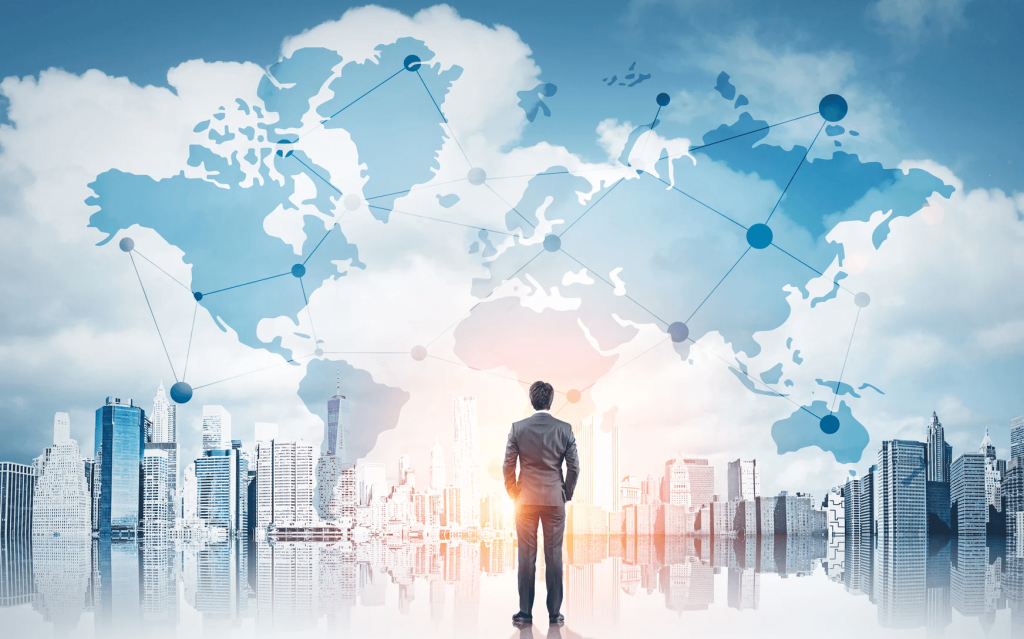
Across industries, companies are waking up to AI’s potential to streamline operations, create innovative products, and understand customers better. Intelligent chatbots are already transforming customer service. Supply chains and logistics are being optimized by AI. In the future, conclusively proving the business value of AI investments will become essential. Companies that fail to leverage AI intelligently will risk falling behind. However, mindlessly automating without proper human oversight can also lead to PR nightmares. Adopting AI judiciously, with people still steering strategy, is key. Overall, organizations that combine human and artificial intelligence in the right balance will gain huge competitive advantages.
How AI Will Change The World of Law
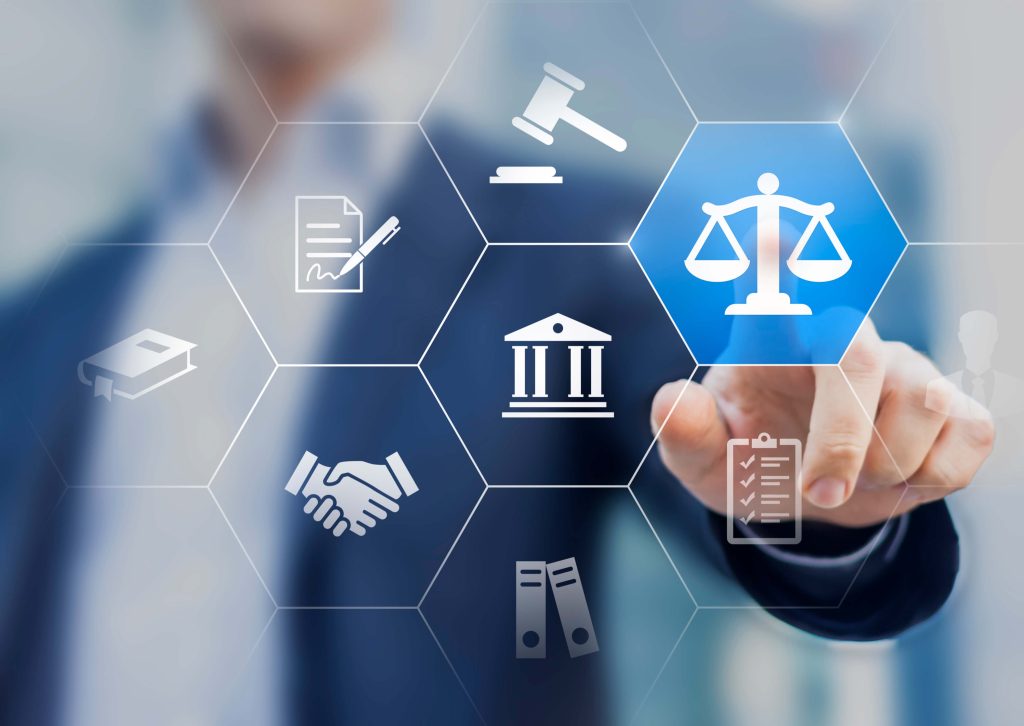
AI legal tools have major potential to make the justice system more fair and efficient. Algorithms can help judges and parole boards make less biased decisions by removing human prejudices from sentencing and bail. Digitizing legal documents and deploying natural language processing can make the law more accessible to regular people. However, misguided AI could also entrench societal biases if great care isn’t taken around data inputs and algorithms. AI should be applied as an enhancement, not a wholesale replacement, for human legal expertise. With thoughtful oversight, AI can help uphold ethics and human rights in the legal field.
How AI Will Change The World of Journalism

Media outlets are increasingly using natural language generation algorithms to automate simple articles about things like sports results and earnings reports. This raises concerns about AI replacing human journalists. However, I believe quality reporting and storytelling still require humans. AI lacks the creativity, critical thinking, and emotional intelligence needed for impactful journalism. The ideal future blends AI assistance with skilled reporters and editors overseeing work. For example, AI tools can help journalists analyze data, streamline research, and reduce workloads to focus on in-depth investigations. But standalone robotic reporters would lack the heart and integrity of real investigative journalism.
AI and Relationships
What role will AI play in future relationships and companionship? Virtual assistants are growing more conversational and personalized. For some, AI friends, lovers, and therapists could fill emotional voids. But many will argue relationships require human warmth, empathy, and mutual growth that AI can’t provide. Relationships may grow more hybrid, with people and AI entities working in close partnerships. But fully replacing human companionship with machines seems unfulfilling. In the end, AI should enhance real relationships, not isolate people in the illusion of connection. Human bonds must remain central.
AI and Mental Health
AI mental health apps are emerging that use natural language processing to chat to users, offer therapy exercises, and monitor wellbeing. AI assistants could make basic counseling and self-care advice more accessible. However, they lack human therapists’ empathy and psychological training to guide real growth. Over-reliance on AI for mental health support risks alienating people further. Hybrid models that use AI tools under human supervision show the most promise. Therapists could then focus on deeper connections during sessions. But standalone AI therapy seems limited, especially for people already struggling socially. Human counselors must lead the way.
AI and Disinformation
The rise of “deep fake” AI-generated misinformation poses big risks surrounding politics, journalism, and more. Hyper-realistic fake videos and images can deceive people. And bots can rapidly amplify false narratives. However, AI can also help identify and combat disinformation. Algorithms that analyze linguistic patterns and network dissemination can flag likely deepfakes. While AI will enable new kinds of misinformation campaigns, it can also equip us with better defenses if developed prudently. Maintaining public trust in an era of AI requires taking an aggressive, proactive stance against disinformation.
AI and the Developing World
AI has huge potential to aid development challenges like health, agriculture, and education in poor nations. Disease diagnosis algorithms can save lives where doctors are scarce. Chatbots can deliver virtual tutoring in remote regions. AI industry and automation can drive economic growth. But care must be taken to ensure AI really serves broad populations, not just urban elites. Developing nations will require investments in infrastructure, connectivity, and tech skills to unlock AI’s benefits, as well as policies to manage disruptions. If development institutions make AI inclusion a priority, the global equity gap can narrow rather than worsen.
AI and Existential Risk
Once advanced AI matches and exceeds human intelligence, will it always act in our interests and remain under control? Or could it pose existential risks? AI safety research explores ways to maximize the benefits while avoiding potentially catastrophic mistakes or conflicts. This includes principles like transparency, quantifying uncertainty, and interruptibility. Some think truly aligning AI values with humanity’s at a deep level may prove intractable. But with prudent design principles, responsible development practices, and retaining meaningful human oversight, the risks appear manageable. Fear of superintelligent AI should inspire diligent preparation, not doom and gloom. If stewarded well, AI can create an inspiring future for all.
If you’re a parent looking for a comprehensive guide to preparing your child for an AI-driven future and helping them understand how AI will change the world, Enlightened: A Parent’s Guide to AI Education is an invaluable resource. In this book, author Anant provides readers with an accessible yet in-depth look at how artificial intelligence is transforming education and the world we live in. With an optimistic yet realistic tone, he outlines practical strategies parents can use to nurture their child’s creativity, critical thinking, and emotional intelligence to thrive in an era of rapid technological change. While exploring topics ranging from personalized learning to digital ethics, Anant strikes the perfect balance – embracing the amazing potential of AI while still addressing risks and limitations. Any parent wondering how to equip their child for success in a rapidly evolving landscape will find this book packed with insightful advice, engaging examples, and actionable tools. This is a must-read for parents seeking a comprehensive approach to raising the next generation of responsible, technologically-savvy kids.
Grab your copy today!

